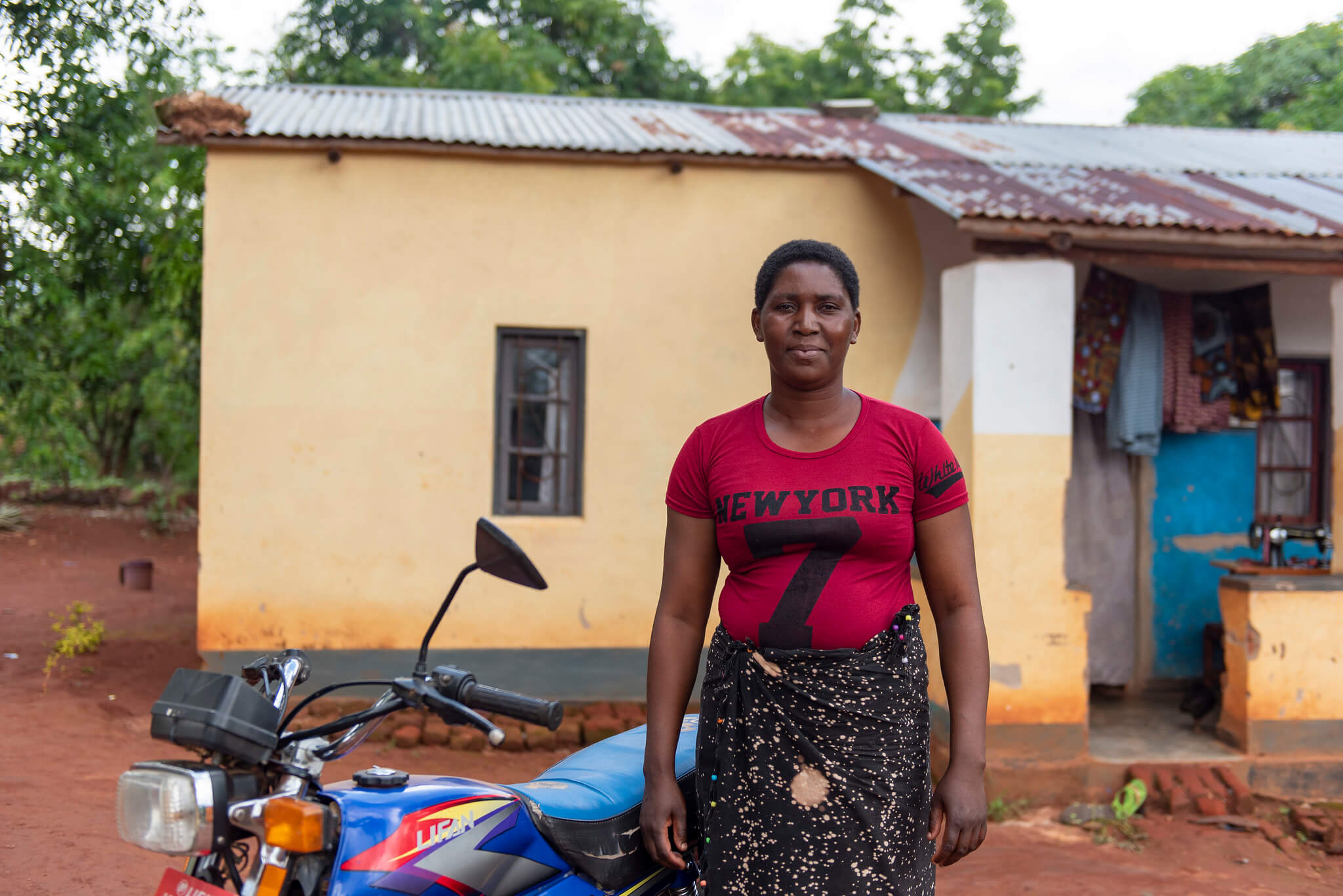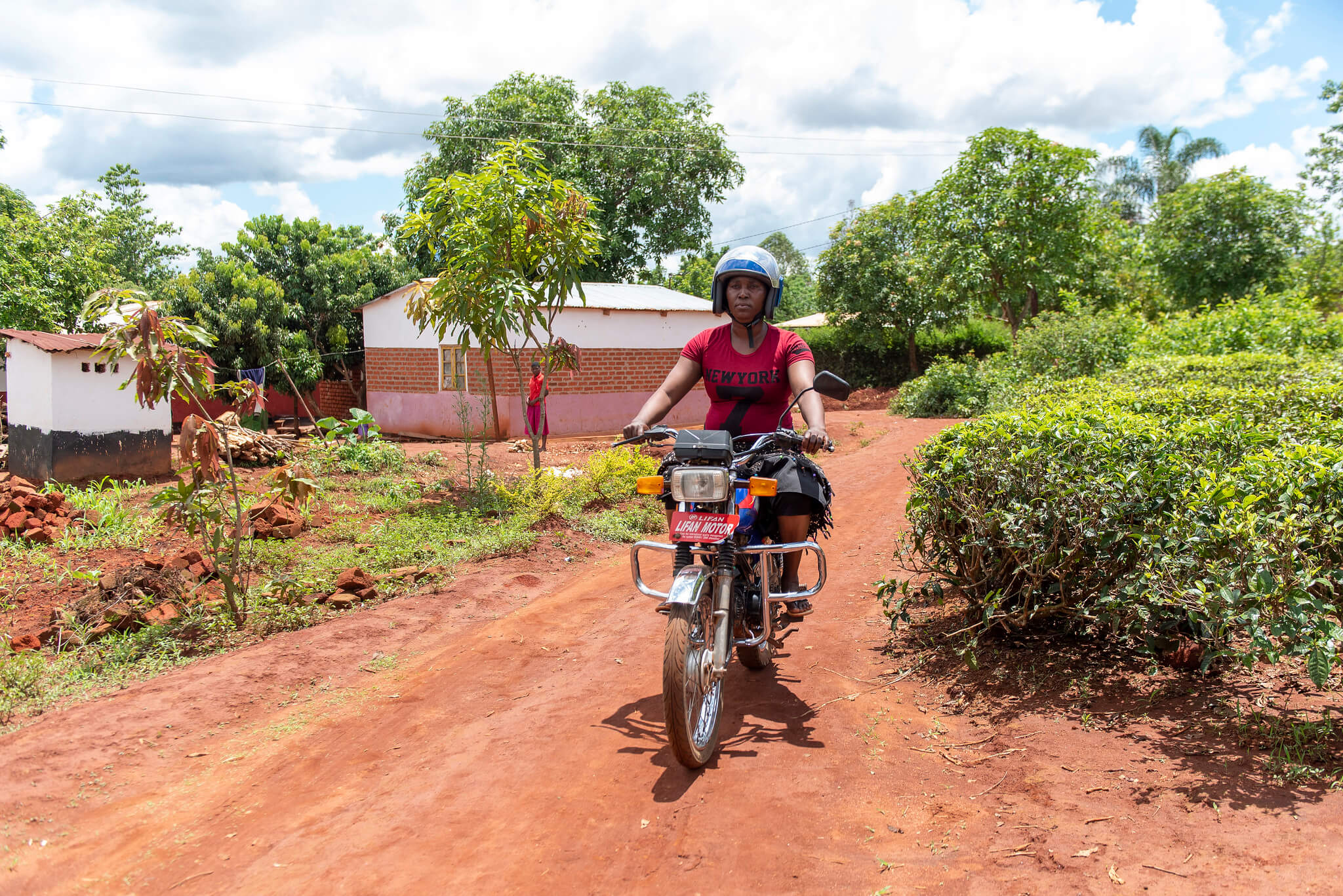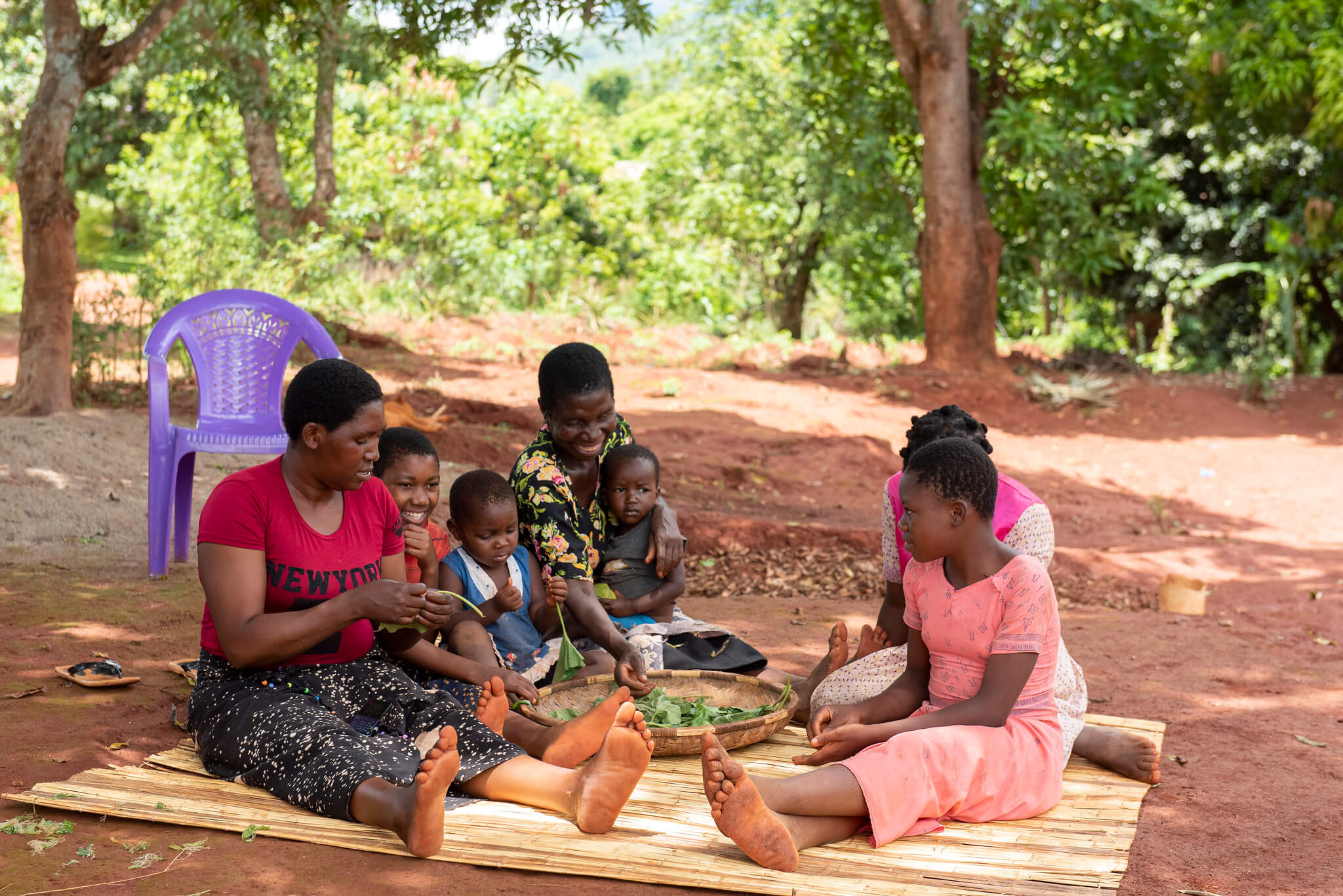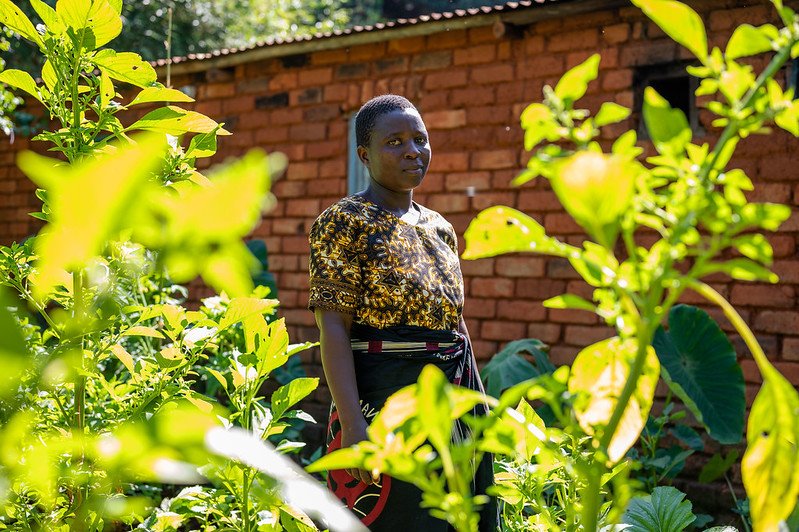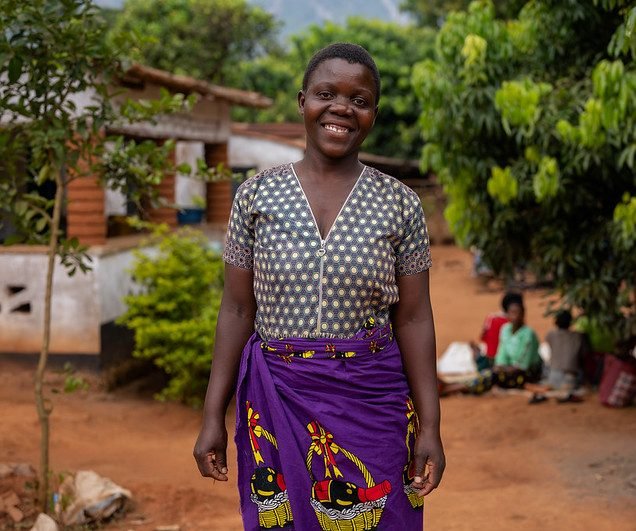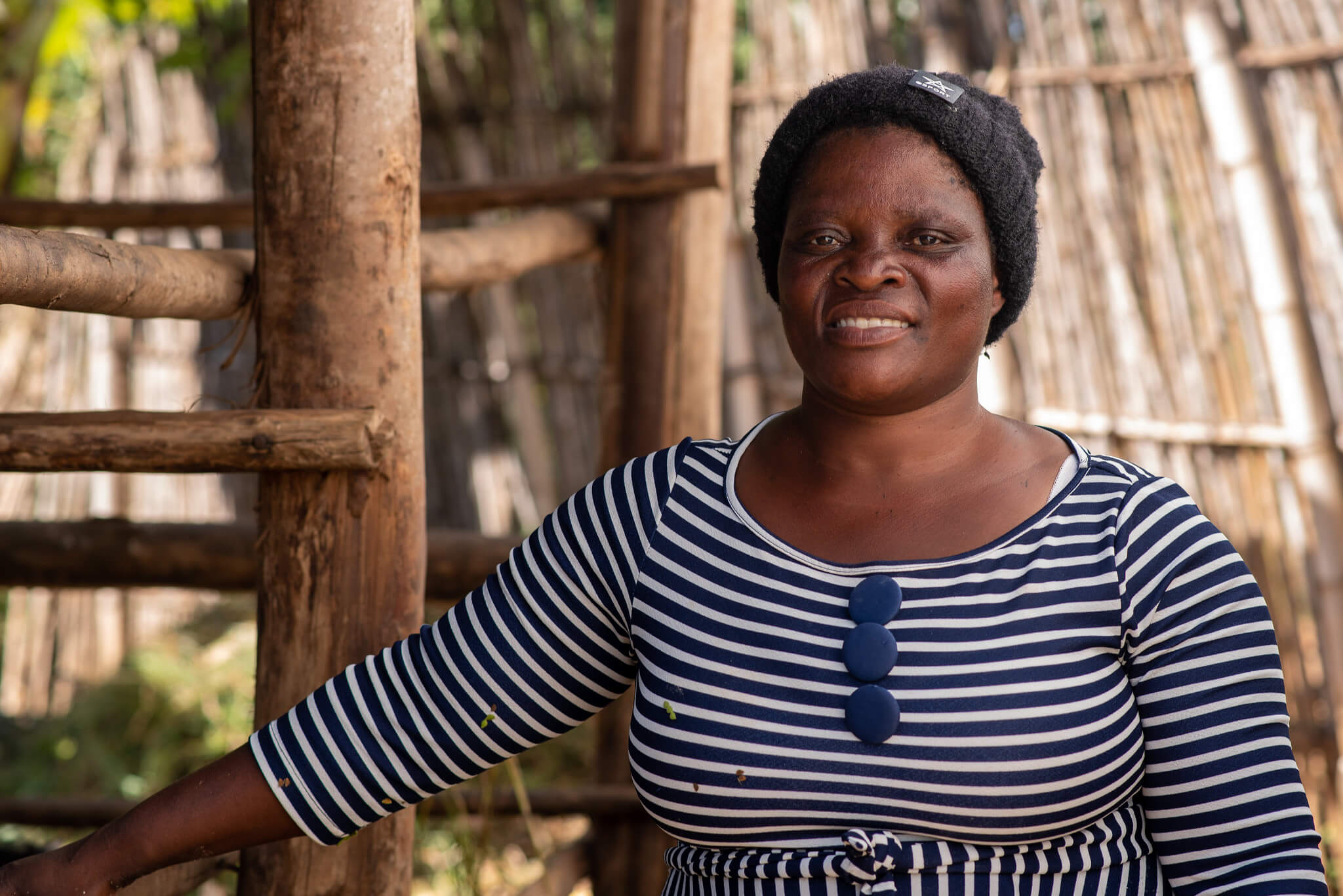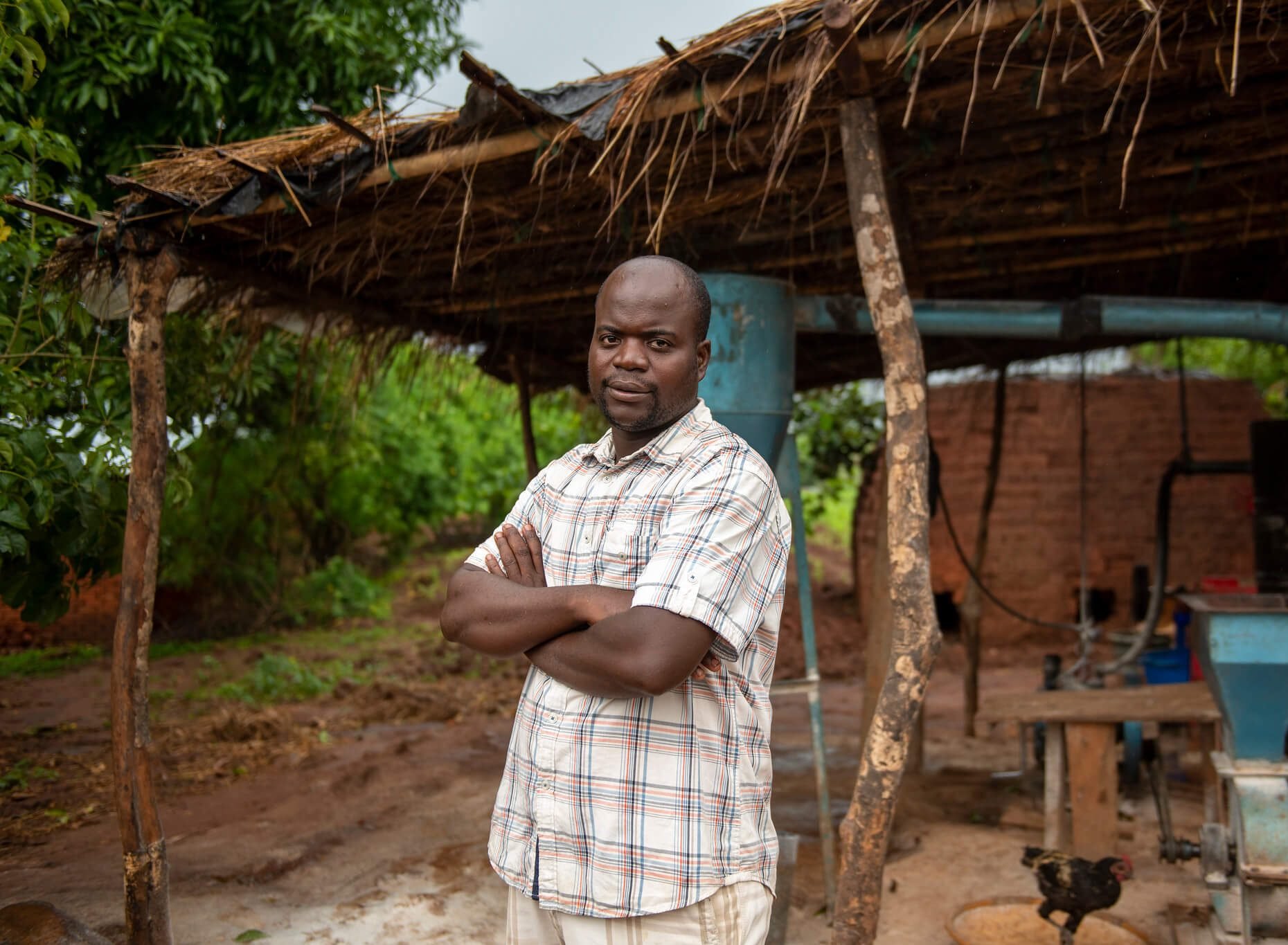In 2020, as part of the Kuwala initiative and with training provided by ETP, 38-year-old tea worker Fanny Paul joined a Village Savings and Loans Association (VSLA).
As a single mother of three, Fanny is economically vulnerable, and supports her children’s welfare and education through one income – her work in the fields of Ruo tea estate, southern Malawi. Before joining the VSLA, Fanny found that her wages were not sufficient to cover her family’s basic needs. Faced with the risk of falling deeper into poverty, she turned to loan sharks – but experienced their dangerous consequences.
“I used to borrow money from people, and the loans came with very high interest,” she explains. “As such, I often used my wages to settle the loans.
“I remained stranded, with nothing to support my family, as all I earned was taken away from me [by] loan repayments.”
